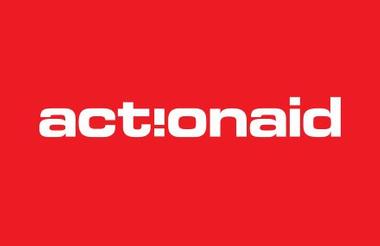ActionAid UK has reported making some “progress” towards becoming an anti-racist organisation, after an internal review in 2021 found that some staff had experienced systemic racism.
In 2021, ActionAid UK undertook an anti-racism audit which found that staff who identified as people of colour or within the Black and ethnic minority community felt less valued, supported and empowered than their white colleagues.
In light of the findings, the charity pledged to “begin addressing and dismantling systemic racism within ActionAid UK in 2022” but this was delayed to 2023 due to high turnover in the charity’s board and senior management team.
In its recently published annual report, ActionAid UK said that anti-racism and decolonialisation is an overarching objective that ran through all its work last year.
Meanwhile, the charity recorded a deficit in 2023 as its income fell by 11% to £53.3m due to a reduction in funding from Disasters Emergency Committee (DEC) appeals.
Becoming an anti-racist organisation
ActionAid UK said in its 2023 annual report that “progress towards being an anti-racist organisation has begun”.
This progress, the charity wrote, “creates a risk of harm to staff of colour and continued work is needed to strengthen the relationship between staff, senior management and the board of trustees”.
It cited work to mitigate the impact on staff “by engaging specialist staff wellbeing services, undertaking a roundtable process to promote healing and trust and developing an action plan to address shortfalls identified within the organisation”.
ActionAid UK created a decolonisation committee to oversee the implementation of recommendations from its anti-racism work and changed how it uses imagery.
“As an organisation ActionAid UK is committed to moving away from traditional charity imagery that depicts people as helpless, desperate and without dignity,” its report reads.
“Instead, we commission women photographers worldwide to shine a spotlight on their own communities in an authentic way, emphasising humanity, individuality, agency, courage, and hope.”
This year, the charity said it intends to develop overarching principles for its work on anti-racism and decolonialisation which will guide operational areas and approaches including its funding models, brand and identity, research, policies and partnerships.
Drop in income
ActionAid UK’s annual report shows that its total income fell by 11% last year to £53.3m, following an increase of 20% in 2022, while its total expenditure fell from £58.1m to £54.7m.
The decrease in income was driven by a fall in funding from DEC to £6.73m in 2023 compared with £12.7m in 2022 (which included £11.5m from the Ukraine Emergency Appeal) and the impact of the cost-of-living crisis on fundraising activity.
Committed giving decreased by £1.4m to £25.9m.
Fundraising income from committed giving, donations, appeals and legacies fell from £37.6m to £35m, despite achieving the second-highest level of legacy income ActionAid UK has ever raised.
“Whilst income from DEC did fall, we still received allocations of £4.5m for the Turkey/Syria appeal and a further allocation of £2.1m for Ukraine,” the report reads.
“Also, even though our supporters continued to feel the impact of the cost of living crisis in the UK, they continued to show their incredible generosity as we raised £2.8m on the emergency appeals that we ran during the year for the humanitarian crises in Turkey/Syria, East Africa, Morocco and Gaza.”
Meanwhile, grant and contract income rose by under £2m to £10.9m (2022: £8.9m), largely due to an increase in grants from trusts, foundations and corporates of £1m, and income from the ALM-FGM contract increasing by £1m to £1.6m (2022: £600,000).
ActionAid UK raised a total of £40.4m across public fundraising against a budget income of £39.6m.
Safeguarding cases closed
On safeguarding, ActionAid UK said it closed 19 “incident management processes” last year, with incidents raised between 2020 and 2023.
Some 11 reports were carried over into 2024, and the subjects of concerns in these processes consisted of 11 ActionAid staff, two partner staff and seven other ActionAid representatives.
The report says that in 16 of these processes, a formal investigation was possible, with the consent of the survivor, while in 13, cases disciplinary action was taken.
In three cases, individuals not employed directly by ActionAid UK breached the charity’s sexual harassment, exploitation and abuse policies and were dismissed.
“Measures were put in place to prevent rehiring,” the report reads.
It adds: “ActionAid was unable to investigate three reported incidents due to a lack of knowledge about the identity of the survivor and the subject of concern, a survivor withdrawing consent, a survivor wishing for ActionAid to take action; but they did not wish for ActionAid to investigate the concerns.
“Where we cannot carry out a full investigation, we will always look at ways of using the complaint to identify areas of focus, including changing behaviours, culture and abuse of power through training and awareness-raising, improvements to policies and procedures and enhancing the way in which we support survivors.”
Related articles











